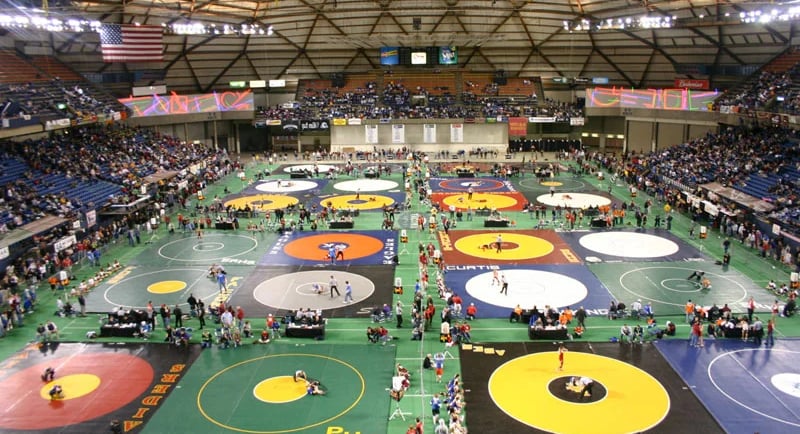5 Recruiting Tips Every Small-Town Athlete Needs to Know
Getting recruited to wrestle in college can be complex, and not every athlete has college coaches blowing up their phone, or parents to tell them how to get recruited. Some kids have to work to get noticed, and here are some tips to help along the way.
Spencer Humpherys, College Wrestling Coach and NCSA Wrestling Recruiting Coach
8/14/20252 min read


5 Recruiting Tips Every Small-Town Athlete Needs to Know
As a college wrestling coach and someone who works full-time for a recruiting agency, I see firsthand what helps athletes get noticed—and what holds them back.
If you’re from a small town, you might feel like the odds are stacked against you. But here’s the truth: plenty of small-town athletes go on to compete at the next level. The key is knowing how to market yourself, connect with the right people, and put in the right kind of work.
Here are my top five tips to help you get recruited.
1. Go After the Assistants
When reaching out to a program, skip straight to the assistant coaches.
They’re usually more accessible, easier to get in touch with, and often handle the bulk of recruiting. Head coaches are busy managing the program, while assistants are actively scouting and building relationships with athletes.
Pro Tip: If you can get an assistant coach in your corner, you’re already halfway there.
2. Keep Your Instagram Public
I can’t tell you how many times I’ve wanted to reach out to an athlete—only to find their profile locked down. If a coach can’t see your highlights, training clips, and personality, they’ll move on to the next recruit.
Action Step: Keep it professional, keep it clean, and keep it public. Your Instagram is basically your digital recruiting brochure.
3. Compete in the Offseason
Want to stand out? Wrestle in club, hit freestyle/Greco state, and attend a few camps. Offseason work compounds faster than you might think—it’s one of the best ways to level up your skill and get seen.
Pro Tip: Summer is when you can make the kind of leaps that separate you from the pack by the time the next season rolls around.
4. Be Honest About Your Level
Yes, going Division I is an amazing goal. But be real with yourself: depending on your state, if you haven’t won state or placed very high—or made deep runs at big national tournaments—you might not be headed D1 right out of high school. And that’s okay.
There are incredible opportunities at D2, D3, and NAIA schools where you can still compete at a very high level. Look at someone like Caden Henschel—success doesn’t just live in Division I.
5. Follow Up—But Don’t Pester
The squeaky wheel gets the grease, but too much squeaking gets ignored. Once you’ve made contact with a coach, send updates when you have something to share—new match results, highlight clips, or academic achievements—but don’t blow up their phone or DMs every week.
Pro Tip: Think of it as building a relationship, not making a sales pitch.
Final Word
Being from a small town doesn’t mean you’re invisible. It means you need to be intentional, consistent, and realistic in your approach. Build the right connections, show your work, and stay the course—because the right program will see your value.
Contacts
spencerhumpherys@gmail.com 509-350-3780
Spencer Humpherys